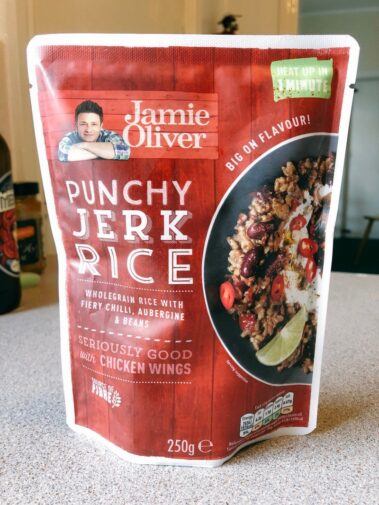

THE online culture wars became inflamed again recently in an episode triggered by — of all things — microwave rice. After celebrity chef Jamie Oliver released his new “Punchy Jerk Rice” Dawn Butler, Labour MP and daughter of Jamaican immigrants, took to Twitter to admonish him.
She wrote:
“#jamieoliver @jamieoliver #jerk I’m just wondering do you know what #Jamaican#jerk actually is? It’s not just a word you put before stuff to sell products.@levirootsmusic should do a masterclass. Your jerk Rice is not ok. This appropriation from Jamaica needs to stop.”
In the following week this instigated a circus of mass-right wing misinterpretation, ignorant thinkpieces and a shirty backlash from Oliver himself, who tweeted to describe the criticism as “mad” and “daftness”.
So, naturally I decided to buy some and review it.
The problem is that Oliver’s ‘Punchy Jerk Rice’ will be immediately jarring to anyone familiar with jerk cuisine because jerk flavouring is what you flavour chicken with, not the rice. As explained in an excellent piece from Eater London, traditional jerk involves cooking chicken, fish or pork with a seasoning of allspice, berries and scotch bonnet peppers. Recipes and methods vary as with any cultural tradition, but these are the three key ingredients. Counterpose this with the ingredients of Jamie Oliver’s rice: ginger, garlic and jalapeño chilli.
The outcome is a completely bland side dish that would serve more use as plant fertiliser rather than paired with jerk chicken. It tastes like microwaved soil. I failed to finish the dish and would describe it as tasteless and pointless. The wholegrain rice comes out dry and gravelly, and not a single note of the jalapeño comes through.
In authentic jerk you can physically see the shreds of scotch bonnet peppered throughout the sauce, combined with the other ingredients this creates a fiery, juicy, fruity flavour that complements the chicken perfectly without being overpowering.
If you look at the Scoville scale, which assigns a numerical value to the spiciness of different peppers, scotch bonnets score highly at around ~350,000. Jalapeños however, come in at the measly 1,000 — 10,000 range. Which leads me to ask, is this cultural appropriation or cultural wimpification?
Cultural appropriation is a thorny issue which is rarely approached with any genuine curiosity in societal discourse. Many pundits misrepresented Butler as arguing that white people are not allowed to cook or eat food from other cultures, which is not the case.
In reality, many countries make efforts to protect the namesake of their produce. If Jamie Oliver were rebottling own-brand supermarket sparkling wine and selling it in his Italian restaurants as Prosecco, the Italian government would certainly have something to say about it. That being said, cultural appropriation discourse should move beyond questions of copyright and government-protected intellectual property. As Briahna Joy Gray outlines in her piece ‘The Question Of Cultural Appropriation’, “ …it’s more helpful to look at things in terms of economic exploitation rather than ownership”.
The facts of the matter are that a celebrity businessman worth an estimated £150 million has slapped the jerk label on an awful microwave rice product that bears no resemblance to the traditional preparation developed by Jamaican ex-slaves. It is reasonable and correct that Oliver should be criticised for disrespecting their traditions whilst profiting from their name.